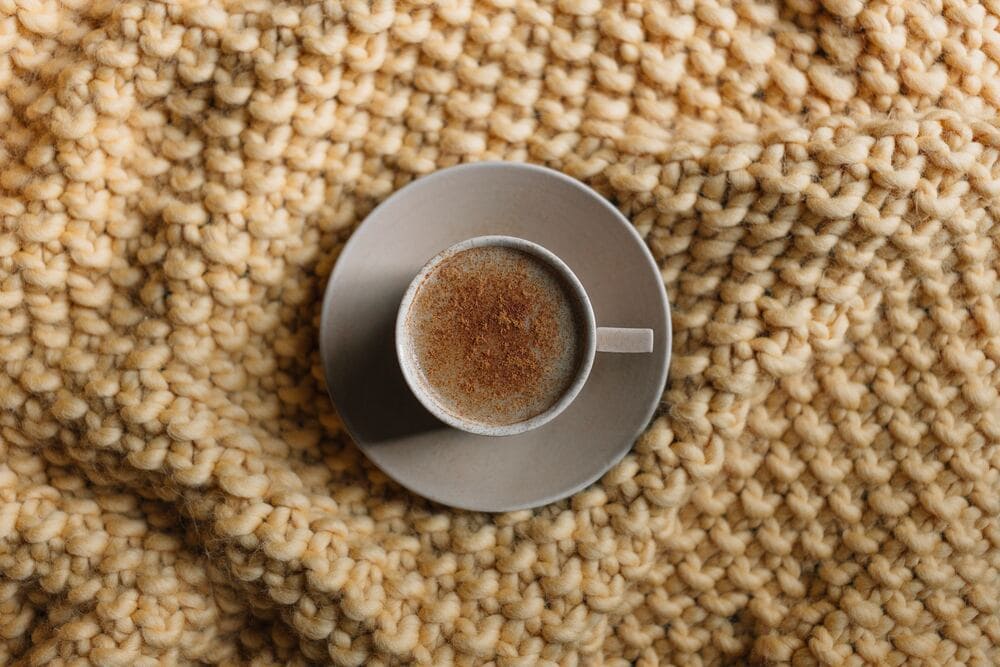The 5 Amazing Benefits of Mulberry Leaves
Blog Nutrition & Recipes The 5 Amazing Benefits of Mulberry Leaves

When most people think of the best part of a mulberry tree, they immediately think of the fruit. Tasty, dark, used in a range of jams and pies, they’re an absolute delight.
But it turns out that the delicious fruit is only the second best part of the mulberry tree.
The best part is actually the leaves, which are packed with an amazing assortment of micronutrients, and which can offer some pretty spectacular benefits.
In this post, we’re going to take a deep-dive into mulberry leaves. We’ll look at what nutrients they contain, what benefits they can offer, and what, if any, side effects they might have.
By the end of this post, you’ll have a much better understanding of this amazing natural remedy that can improve your health and combat biological aging!
The Many Benefits of Mulberry Leaves
Let’s start off with the basics: what nutrients do mulberry leaves contain?
Mulberry leaves are rich in:
-
Vitamin C
-
Phosphorus
-
Magnesium
-
Calcium
-
Zinc
-
Iron
-
Potassium
You might be thinking, “Well, hang on, are you telling me you can actually eat the leaves?”
The answer is an unequivocal yes.
A lot of foragers eat mulberry leaves—they consider the leaves a staple as part of a “wild salad” [1]. When the leaves are young and tender, they’re fully edible, either raw or cooked.
However, the most common use of mulberry leaves is in teas and tinctures. Mulberry leaf tea has been a staple herbal remedy for thousands of years, used for its medicinal properties.
What medicinal properties, you ask?
Controlling Blood Sugar
Multiple studies have proven that mulberry leaf (and mulberry leaf extract) can help to decrease the blood glucose response following a high-carbohydrate meal, essentially lowering sugar levels in your bloodstream.
In one study [2], 37 adults between the ages of 19 and 59 were given either a placebo or mulberry leaf supplement along with a high-glucose maltodextrin supplement (to mimic the results of a high-carbohydrate meal). Those who received the mulberry leaf extract had “statistically significantly” lower blood sugar levels than those who received the placebo. Best of all, there were no digestive issues or gastrointestinal issues following the extract’s use (meaning low side effect risk).
One meta-analysis [3] involving 12 clinical trials found that “Mulberry leaf (ML) and mulberry leaf extract (MLE) supplementation resulted in a significant reduction in fasting blood glucose (FBG)”. Not only that, but the paper concluded that “long-term supplementation of ML/MLE (≥8 weeks) was more effective for regulation of the glycemic traits”.
Mulberry leaves are rich in phytochemicals, polysaccharides, flavonoids, and phenolics, all of which can help regulate (and lower) blood sugar levels both following your meals and throughout the day (as indicated by fasting blood glucose).
Fighting Obesity
Mulberry leaf tea has long been used as a fat-burning, obesity-fighting remedy, and recent research has proven the reason behind its effects.
One 2022 study [4] found that the cryptochlorogenic acid and neochlorogenic acid in mulberry leaves “inhibited lipid accumulation in…adipocytes without cytotoxicity and suppressed the expression of CCAAT/enhancer-binding protein alpha. In addition, (the supplement) decreased high-fat diet-induced adipose tissue mass expansion.”
Translating this into simple terms, the mulberry leaves used in this research stopped the adipose tissue from accumulating lipids (fat cells), even when on a high-fat diet. Given how much fat is prevalent in the modern diet, it’s definitely a positive result that can benefit us all!
But that’s not all the leaves can do. In fact, there’s a possibility that they can fight obesity by not only stopping weight gain, but also promoting weight loss.
A 2019 animal study [5] found that treating diet-induced obese mice with mulberry leaf extract had significant effects on their weight. Within just 13 weeks of taking the supplement—with no other intervention to their diet or lifestyle—the results were visible.
The study found that “mulberry leaves significantly alleviated adiposity of DIO mice including reducing body weight gain, fat accumulation and fasting blood glucose, and improving insulin sensitivity. In addition, mulberry leaves had protective effects on liver and kidneys.”
Again, it’s those powerful flavonoids and polyphenols hard at work preventing inflammation and enhancing the body’s internal functions to combat the effects of a high-fat diet.
The real kicker, though, was that “mulberry leaves could alleviate obesity by enhancing brown adipose tissue (BAT) activity partly indicated by elevated thermogenesis and overexpression of uncoupling protein 1 in BAT.”
Brown adipose tissue is a sort of “good” fat. The white adipose tissue is used to store the fat you consume, and then is broken down when the time comes to burn fat for fuel. Brown adipose tissue, however, is the stuff that oxidizes the lipids from your white adipose tissue, providing the “fuel” to use for thermogenesis.
Obesity can lead to an increase in white adipose tissue and a decrease in brown adipose tissue, which makes your body less effective at burning fat. However, by turning that on its head and increasing brown adipose tissue, mulberry leaves help your body burn fat more efficiently and decreases the amount of fat that is stored.
Get FREE Access!
We are on a mission to change your life by providing you with curated science-backed health tips, nutrition advice and mouth-watering recipes. Sign up to receive your 3 starter gifts and get exclusive access to new weekly content for FREE:

Free eBook
to boost metabolism

4 Shopping Guides
for every diet

22 Free Recipes
to beat sugar addiction

Subscribe now
Improving Cardiovascular Health
Research has shown that mulberry leaves can directly benefit your cardiovascular system in a number of ways. The data [6] proves that these leaves are:
-
Antihyperglycaemic (lowering blood sugar levels, which reduces your risk of diabetes)
-
Antihyperlipidaemic (combatting the accumulating of fats in your bloodstream and around your organs)
-
Antiobesity (also by curbing fat storage)
-
Antihypertensive (lowering your blood pressure and ensuring more efficient circulation)
-
Antioxidative (combatting the oxidative stress and free radical damage that can lead to widespread health concerns)
-
Anti-inflammatory (curbing the inflammation that contributes to disease and internal dysfunction)
-
Anti-atherosclerotic (preventing the buildup of arterial plaque that causes narrowing of your arteries)
-
Cardioprotective (by combining all of the above effects, they protect your cardiovascular system)
Combatting Cancer
Only a couple of studies [6, 7] have provided close to “conclusive” evidence that mulberry leaves can effectively fight off cancer.
In one, mulberry leaf extract inhibited the growth and spread of hepatoma cells (liver cancer), while in the other, it was demonstrated to have noticeable anti-cancer activity against cervical cancer.
Further research is needed to provide more concrete data, but suffice it to say, all signs point toward mulberry leaf extract being one more weapon in your arsenal to prevent and combat cancer.
Improving Skin Health
Last, but definitely not least, mulberry leaves may help to improve your skin health.
In one 2016 paper [8], researchers discovered that mulberry leaves are able to inhibit tyrosinase, an enzyme that plays a role in the production of melanin. Specifically, tyrosinase often leads to the over-production of melanin, which leads to skin conditions like hyperpigmentation.
By decreasing tyrosinase, mulberry leaves helped balance skin pigmentation and prevented hyperpigmentation.
In addition, the natural anti-inflammatory properties of mulberry leaves can combat other skin conditions, and the antioxidants may reduce skin aging.
Are There Risks to Mulberry Leaves?
Some people find that the sap of mulberry leaves (called “latex”) can cause an upset stomach when ingested (raw, cooked, or in tea). However, many people tolerate it just fine and experience no irritation.
Some minor side effects have been reported [9], including:
-
Constipation
-
Bloating
-
Dizziness
-
Nausea
-
Diarrhea
This is the case when taking supplements as well as ingesting mulberry leaves raw, cooked, or in teas and tinctures.
There are some indications that mulberry leaves may pose a health risk to anyone taking blood sugar medications [10], due to their antihyperglycaemic effects.
Pregnant or nursing mothers and young children should also avoid taking mulberry leaves.
Just to be on the safe side, always consult with your doctor before trying mulberry leaves, particularly in supplement, tincture, or tea form.
Wrapping Up:
If you’ve only been eating mulberries all these years and never touching the leaves, you’ve been missing out!
As you’ve read above, mulberry leaves have a lot of truly amazing benefits—lowering blood sugar, combatting obesity, improving your cardiovascular health, fighting cancer, and making your skin healthier.
If you’re looking for a natural solution to enhance your health, it may very well be worth giving mulberry leaves a try.
Resources:
[1] https://www.youtube.com/watch?v=Dim1ksiJeJc
[2] https://www.ncbi.nlm.nih.gov/pmc/articles/PMC5321430/
[3] https://pubmed.ncbi.nlm.nih.gov/36644880/
[4] https://www.nature.com/articles/s41598-022-23856-9'
[5] https://pubmed.ncbi.nlm.nih.gov/31312821/
[6] https://www.ncbi.nlm.nih.gov/pmc/articles/PMC6130672
[7] https://pubmed.ncbi.nlm.nih.gov/20828312/
[8] https://www.ncbi.nlm.nih.gov/pmc/articles/PMC5031429/
[9] https://pubmed.ncbi.nlm.nih.gov/20687135/
[10] https://www.ncbi.nlm.nih.gov/pmc/articles/PMC6412198/

We created ZONIA because we believe that everyone deserves to be empowered with the education and tools to be healthy and happy. Zonia's original videos and personalized transformation programs by our health & wellness experts will help you achieve this mission. Click on the button below to get started today:
















